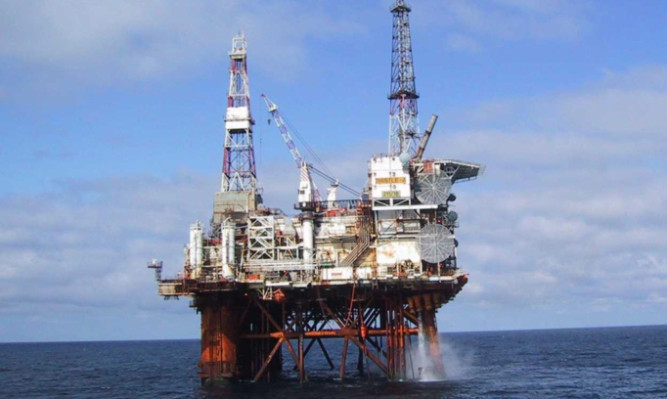An independent Scotland should “learn from France” by ignoring EU rules in order to maximise gains from oil and gas exploration, according to a report produced by a former SNP leader.
The analysis by Options for Scotland, a group established by Gordon Wilson who led the SNP in the 1980s, suggests that while Britain sticks to the rules, Scotland should ensure its own goods and services are employed in exploration, development and decommissioning.
The paper also encourages people in Scotland to imagine the “striking buildings” of Dubai to see what the country could have been like if it had the powers of independence when North Sea oil was discovered.
In a series of eight “options”, the paper, co-authored with chartered engineer Martyn Tulloch, seeks to raise awareness of the “potential value and importance” of the industry.
It suggests a newly independent Scotland should immediately court controversy with European neighbours.
Following the primary focus of establishing an oil and gas directorate in Aberdeen, the paper states: “As to European rules, these never seem to apply to France which without fuss awards contracts to domestic suppliers without retribution.
“We can learn from France. Britain keeps rigorously to the rules as if it is a game of cricket. France does not play cricket and trade is not a game. We have the oil and gas. It is right that we should benefit primarily from our energy resources, especially as there is no EU energy policy to bind us.”
The report, which contains images of gleaming desert skyscrapers, suggests good planning can help build the economy for a time when oil runs out.
“Dubai has little oil now in production,” the report observes.
“But look at the striking buildings of Dubai City. See what Scotland could have been like if we had been independent at the start.”
In their final option, the authors say Scotland should challenge the rest of the UK to return fishing waters signed away at the start of devolution. The decision moved thousands of square miles into English jurisdiction off the east coast.
“This parliamentary order was stated to be for fishing but it could be used as a stalking horse by England to seize parts of the central North Sea containing oil, gas and shale,” the report states.
“Given the belligerence and hostility from London on defence, the currency and Europe it would be wise for Scotland’s negotiators to be on guard. The French might not be wrong in their description of England as ‘perfidious Albion’!”
Other suggestions include the use of oil revenues to help start-up businesses break into international markets, investment in young people in the industry and the creation of a state company.
It also suggests leaving taxation “stable” in the early years and developing a specific oil fund for future use.
In a statement released with the report, Mr Tulloch said: “The referendum debate has become bogged down in a statistical battle over the amount of oil revenues that an independent Scotland will get over the next five years. This is a spurious, irrelevant debate. We start from the position that oil is a long-term capital resource and the time span of five years is ludicrous. We have based our calculations on a more realistic 38-year period to 2050.”
Mr Wilson said: “Successive UK governments have failed to maximise the job opportunities. Distracted by priorities of the banking and finance industries of the City of London, they have neglected the sector and left it without direction. Apart from Aberdeen, there has been limited spin-off to other parts of the country.”
